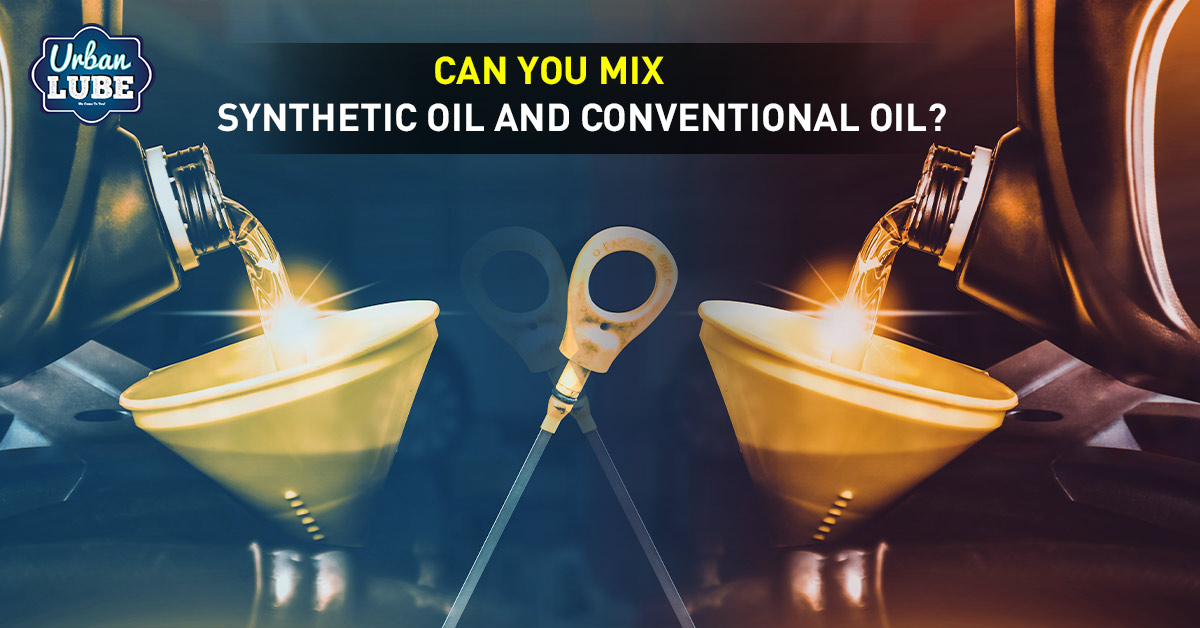
Over the years, the debate about using conventional oil versus synthetic oil has remained unresolved. One common question is whether it’s safe to mix synthetic oil and conventional oil. In this blog, we’ll delve into the world of engine oils and provide you with a comprehensive understanding. Whether you can mix conventional and synthetic oil. Along with the benefits of each type of oil and how to make the best decision for your vehicle.
Can You Mix Conventional Oil with Synthetic Oil?
Yes, you can mix Synthetic oil and Conventional oil. However, keep it as a temporary solution until you receive professional oil change services.
If you’re in a situation where you need to top off your oil and only have a different type available, it’s generally better to add a small amount of the different oil rather than letting the oil level drop too low. However, for optimal performance and protection, it’s best to stick with one type of oil throughout the oil change intervals.
Why It is Not Advisable to Mix It?
Mixing synthetic and conventional oil is not advised. Due to its differing properties and potential chemical reactions between the two. This can lead to inconsistent viscosity, reduced engine protection, and compromised performance. It may void warranties. Negate the benefits of synthetic oil, and create confusion in maintenance schedules. It’s best to follow manufacturer recommendations. Use one type of oil to ensure optimal engine health and longevity.
Benefits of Synthetic Oil
- Better Performance: Synthetic oil offers improved performance and protection, especially in extreme conditions.
- Longer Oil Change Intervals: Synthetic oil can last longer between oil changes. Saving you time and money.
- Cold-Weather Performance: Synthetic oil flows more at low temperatures. Ensuring better engine startup in cold climates.
- Reduced Engine Deposits: Synthetic oil has fewer impurities. leading to reduced sludge and deposits in your engine.
- Improved Fuel Efficiency: Synthetic oil’s superior lubrication can contribute to better fuel efficiency.
Benefits of Conventional Oil
- Cost-Effectiveness: Conventional oil is generally more affordable than synthetic oil.
- Compatibility: It’s safe to use conventional oil in older vehicles that were designed for it.
- Widely Available: Conventional oil is available in most auto shops and stores.
- Enough Lubrication: For regular driving conditions, conventional oil provides adequate lubrication.
What If You Have to Mix Oil Types?
Mixing oil types should be a last resort. But if necessary, opt for oils with the same viscosity. Limit the blend to 20% synthetic in conventional, watch the oil quality, and change it soon. Also, seek professional advice if uncertain. For optimal long-term engine performance and protection. It’s recommended to stick with a consistent oil type as advised by your vehicle’s manufacturer.
How To Decide Which Oil To Use
Deciding between conventional and synthetic oil depends on various factors. Here are some key considerations to help you make an informed choice:
- Vehicle Age: Older vehicles might enjoy conventional oil, while newer ones can take advantage of synthetic oil’s advanced protection.
- Driving Conditions: If you frequently drive in extreme conditions, opt for synthetic oil for its superior performance.
- Manufacturer Recommendations: Check your vehicle’s owner’s manual for oil recommendations from the manufacturer.
- Budget: Consider your budget; synthetic oil is pricier but offers extended oil change intervals.
- Engine Performance: If your engine requires higher performance, synthetic oil is likely the better choice.
Conclusion
In the end, the choice between mixing conventional and synthetic oil or using one over the other depends on your vehicle’s needs, your driving habits, and your budget. Both types of oils have their advantages, and understanding these benefits can help you make an informed decision that keeps your engine running for years to come.
Don’t get confused between Synthetic and Conventional Oil, contact Urban Lube to get the best oil change for your vehicle.
Read Next Blog:
